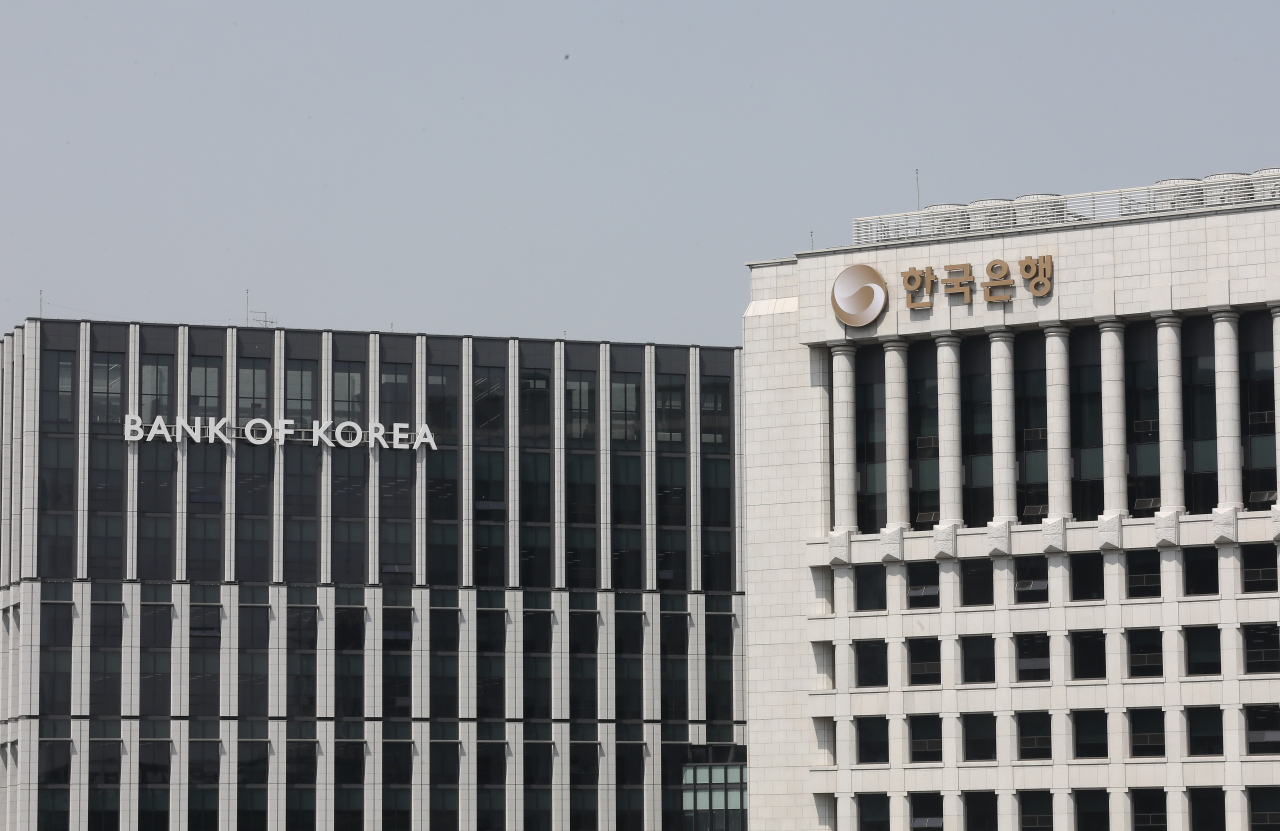BOK extends open market operations to non-banking entities
By Choi Ji-wonPublished : Jan. 26, 2024 - 20:05

The South Korean central bank on Thursday said it will start to buy or sell securities with non-banking finance institutions in open markets, expanding the scope of entities subject to its key monetary policy instrument to control the money supply in the economy.
With the latest change in the Bank of Korea's open market operations, local asset management firms, mutual savings banks and credit unions will now be eligible to engage in repurchase agreements (repos) for securities transactions and monetary stabilization bonds auctions by the central bank. Only around 37 financial institutions, including banks, securities firms and insurance companies, were able to take part in the BOK's buying schemes until now.
The move, set to take effect in February, comes in the wake of the nationwide bank run panic that spread last year over the rising delinquency rates of the nation’s leading mutual financial institution, Korean Federation of Community Credit Cooperatives.
The decision was made during the central bank's Monetary Policy Committee on Thursday.
The newly included participants will be announced in July, according to the central bank.
Open market operations are some of the BOK's main policy tools through which it sells securities, such as government bonds, to financial institutions to influence market liquidity and interest rate levels. Repos are mostly used to raise short-term capital, and the BOK usually sells them to absorb liquidity from the market.
Last year, public anxiety spread fast nationwide after the delinquency rates of the KFCC surged, leading to a massive withdrawal of deposits and prompting fears of a bank run of the nation's primary mutual financial institution.
"The KFCC had in hand a significant amount of government bonds, but because of the shortage in channels to trade repos, it faced setbacks in raising funds," an official from BOK's monetary policy department said, according to the local reports.
Meanwhile, the BOK noted the change is only a short-term liquidity supply measure and is not intended to rescue ailing financial institutions. According to the BOK official, the participating institution must hold high-liquidity bonds, such as government-issued bonds or monetary stabilization bonds, that the central bank can purchase.



















![[Today’s K-pop] Treasure to publish magazine for debut anniversary](http://res.heraldm.com/phpwas/restmb_idxmake.php?idx=642&simg=/content/image/2024/07/26/20240726050551_0.jpg&u=)